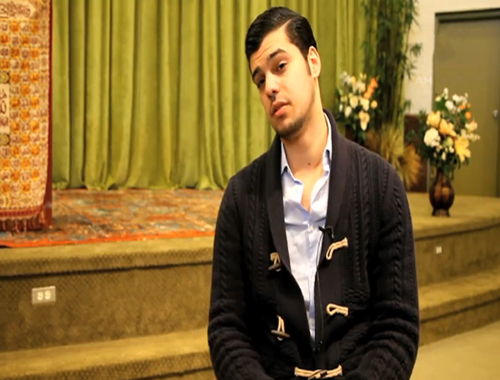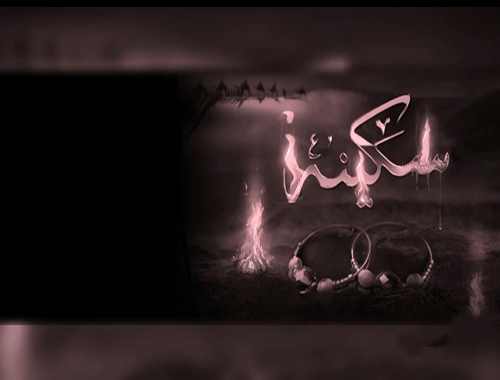Chapter 23-Human Knowledge
- Details
- Hits: 3749
Chapter 23
Human Knowledge
--------------------------------------------------------------------------------
Man is self-conscious as well as world-conscious. He wants to have more and more knowledge of himself and the world. His evolution, progress and happiness depend on these two kinds of knowledge. Which of these two kinds of knowledge is of greater importance and which of lesser? It is not so simple to answer this question. Some attach more importance to the knowledge of oneself and others to the knowledge of the world. One reason of the difference in the answer to this question may be a difference in the way of thinking of the East and the West. Another reason may be the difference in the outlook of science and faith. Science is the means of knowing the world whereas faith is the outcome of self-consciousness.
Anyway, science tries to make man aware of himself in the same way as it tries to make him aware of the world. Various branches of psychology bear this responsibility. But the self-consciousness given by science is dull and lifeless. It does not enliven the spirit of man nor does it awaken his dormant faculties. In contrast, the self-consciousness provided by religion makes man aware of his reality, removes his apathy, fires his soul and makes him compassionate and sympathetic. That task cannot be undertaken by any science or philosophy. Not only that, science and philosophy sometimes even add to man's insensitiveness and make him oblivious of himself. That is why many scientists and philosophers are insensitive and selfish like the proverbial dog in the manger. They are unconscious of their selves while many an uneducated man is self-conscious.
Religion calls for self-consciousness. The head lines of its teachings are: Know yourself so that you may know your Lord. Do not forget your Lord so that you may not forget yourself. The Holy Qur'an says: "Do not be like those who forget Allah, and so He caused them to forget themselves. Such are really the wicked." (Surah al-Hashr, 59:19)
The Holy Prophet said: "He who knows himself, knows his Lord,"
Imam Ali said: "The most useful of all knowledge is the knowledge of oneself".
He has also said: "I wonder how a man who looks for the things lost by him, does not look for himself".
The basic criticism levelled by the knowledgeable circles of the world against the Western culture is that this is the culture of knowing the world and forgetting oneself. Here lies the real secret of the fall of humanity in the West. If a man, in the words of the Holy Qur'an, loses himself, what is the use of his gaining the world? As far as we know, it is Mahatma Gandhi, the late leader of India who from this point of view has most aptly criticised the Western culture. He says:
"The Western man can accomplish great feats which according to other nations can be accomplished only by God. But he cannot do one thing. He cannot look into his inner self. This fact alone is enough to prove the worthlessness of the false glitter of modern culture".
"If Western culture has led the Europeans to indulging in wine and sex, it is because they are bent upon forgetting and wasting their 'self' instead of seeking it. Most of their great and heroic achievements and even their good deeds are the outcome of their forgetting themselves. The practical ability of the Western man to make discoveries, inventions and provision of war equipment, originates from his escape from 'self' and not from his extraordinary self-control. If man loses his soul, what is the use of his conquering the world?"
Gandhi further says: "There exists only one truth in the world and that is the knowledge of self. He who knows himself, knows God and all others. He who does not know himself, does not know anything. In this world there exist one force, one freedom and one justice, and that force is that of ruling over oneself. In this world there exists only one virtue, and that is the virtue of liking others as much as one likes oneself. In other words, we should look upon others as we look upon ourselves. All other questions are imaginary and non-existing". (Introduction to My Religion, 1959)
Whether we attach more importance to the knowledge of self or to the knowledge of the world or we attach equal importance to both of them, it is certain that expansion of knowledge means expansion of human life. Life is tantamount to knowledge and knowledge is tantamount to life. He who has more knowledge of himself and the world has more life.
It is obvious that in this context the knowledge of self does not mean. the knowledge of the contents of one's identity card, which include one's name, names of the parents, place of birth, place of residence etc. Nor does it mean the knowledge of one's biology which can be summarized in the knowledge of an animal higher than the bear and the monkey. To make clear what is intended, we refer briefly to the various kinds of self-consciousness. We skip over the figurative and unreal self-consciousness as that of identity card. We have several kinds of real self-consciousness:
I. Innate Self-Consciousness: Man is self-conscious innately. It is in his nature to be self-conscious. It is not so that first man's ego is formed and thereafter he becomes conscious of it. The birth of ego is tantamount to the birth of self-consciousness. At that stage the knower, the knowing and the known are one and the same. Ego is a reality which in itself is the knowledge of self.
In later stages when man more or less becomes aware of other things he knows himself also in the same way as he knows other things. In other words, he forms a picture of himself in his mind. Technically speaking, he becomes aware of himself through acquired knowledge. But before knowing himself in this way and even before knowing anything else, he knows himself through innate and ever-present self-consciousness.
The psychologists who usually discuss the question of self-consciousness, take into consideration only the second phase of it, that is the acquired mental knowledge, but the philosophers mostly concentrate on the first phase, that is the stage of non-mental innate knowledge. This kind of awareness is the same which in philosophy is described as one of the convincing proofs of the abstraction of ego.
In the case of this kind of knowledge there is no question of any doubt or such questions as: "Am I or am I not? If I am, who am I?" Doubt arises only in the case of acquired knowledge, that is in that case in which the knowledge of a thing is different from its actual existence. But where the knowledge, the knower and the known are one and the same, and the knowledge is of ever-present kind, the existence of doubt cannot be imagined. In other words the existence of any doubt in such a case is impossible.
It is here that Descartes made a basic mistake. He did not realize that 'I am' cannot entertain any doubt, and hence there is no need to remove it by saying: "I think, therefore I am".
Though innate self-consciousness is real, it is not a thing to be acquired. Like the existence of ego it is a basic human characteristic. Hence this inborn self-consciousness is not that self-consciousness which man has been called upon to acquire.
Mentioning the various stages of the development of a foetus in the womb, the Holy Qur'an describes the last stage by saying: "Thereafter we made it a different creation". This verse refers to this very innate self-consciousness which develops as a result of the change of non-conscious matter into a self-conscious spiritual substance.
II. Philosophical Self-consciousness: A philosopher wants to know the real nature of self-conscious ego. Is it a substance or a form? Is it a matter or an abstraction? What relation does it bear to the body? Did it exist before the existence of the body; or did it come into existence alone with it; or has it sprung out of the body? And so on.
At this stage of self-consciousness the main question is: What is the nature and the class of ego? If a philosopher claims to be having self-consciousness, that means that he claims to know the nature, the class and the substance of ego.
III. Universal Self-consciousness: It means the knowledge of self in its relation to the world - the knowledge of the answer to such questions as: Where have I come from? Where am I going to? In this kind of self-consciousness man discovers that he is a part of a whole called the world. He also discovers that he is not an independent being, but he is dependent on some other being. He has not come on his own; does not live on his own; will not go on his own. At this stage man tries to determine his position in this whole known as the world.
These significant words of Imam Ali visualize this sort of self-consciousness: "May Allah bless the man who knows wherefrom he has come; where he is and where he will go".
This kind of self-consciousness creates in man the highest and the most subtle kind of longing for truth which does not exist in animals nor in any other being. It is this self-consciousness which makes man inquisitive, and persuades him to look for satisfaction and conviction. It inflames him with the fire of doubt and denial and makes him waver from one course to another. It is the same fire which impassions the souls of the "Gazalis", makes them so restless that they can neither sleep nor eat, brings them down from the seat of the head of the Nizamiyah, and makes them wander about in the deserts and pass many restless years of their lives away from their hearth and home. It is the same fire which makes the 'Inwan Basris' run after truth from house to house, from street to street and from town to town. It is this self-consciousness that draws the attention of man to the idea of destiny.
IV. Class Self-consciousness: Class self-consciousness is a form of social self-consciousness. It means a consciousness of one's relation to the class to which he belongs. In a class-dominated society from the point of view of the style of life and its blessings and miseries everyone has to belong to a particular stratum or class self-consciousness is the realization of one's class position and class responsibilities.
According to certain theories man has no ego beyond his class. The ego of everyone is the sum-total of his psychic forces, that is the sum-total of his feelings, thoughts, intentions and desires. These all take shape within the framework of a particular class. The proponents of this theory are of the view that man as a mere human being does not exist. His existence as such is only conceptual, not real. What actually exist are the aristocrats and the masses. Man as such could exist only in a classless society, had there been any. Hence in a class-dominated society social self-consciousness is identical with class self-consciousness.
According to this theory class self-consciousness is equivalent to the consciousness of one's own interests, for its philosophy is based on the view that the personality of every individual is governed by his material interests. In any social structure the most important factor is its economic basis. It is common material life and common material interests which give the individuals belonging to a particular class, common conscience, common taste and common judgement. Class life begets class out-look and class out-look makes a man look at the world and society from a particular angle and interpret them as the class interest demands. Accordingly his efforts and social out-look are always class-oriented. Marxism believes in this kind of self-consciousness, which may be termed as Marxist self-consciousness.
V. National Self-consciousness: It means the consciousness of one's relation to the people with whom one has national and racial ties. Man as a result of passing a common life with a group of people having a common law, a common way of life, a common history, common historical successes and failures, a common language and literature and finally a common culture, develops a sort of fellow feeling and a sense of oneness with that group. As an individual has an ego, similarly a nation also by virtue of its having a common culture develops a national ego. A common culture resulting from belonging to a common race brings about similarity and unity among human individuals. Nationhood backed by a common culture turn 'I's' into 'We' for the sake of which people often make sacrifices. They take pride in its successes and feel ashamed of its failures.
National self-consciousness means the consciousness of national culture, national personality and national ego. Basically there exists no world culture. Various cultures exist simultaneously, and each one of them has its own basic characteristics and distinguishing features. Therefore the idea of one single world culture is absurd. Nationalism which was popular in the nineteenth century and is still more or less being preached, is based on this very philosophy. In this kind of self-consciousness everything, that is evaluation, decision making and orientation, has a national aspect and moves along a national orbit, whereas in class self-consciousness everything has a class aspect.
Though national self-consciousness does not fall within the category of the consciousness of self-interest, yet it belongs to the family of selfishness. It suffers from all the maladies and defects of selfishness, such as prejudice, partiality, over-looking one's own faults, conceit and vanity. As such, like class self-consciousness it also has no moral side.
VI. Human Self-consciousness: It means consciousness of one's relation to all other human beings. Human self-consciousness is based on the philosophy that all human beings taken together, form one single unit and are endowed with a 'common human conscience'. A sense of love of humanity and fellow-feeling exists in all men.
Sa'di, the world famous Persian poet says: "All men are like the organs of one body. A man who has no sympathy with others, does not deserve to be called a human being".
That is the idea which is entertained by those who like Auguste Comte have been and are still in search of a religion of humanity. That is also the fundamental principle of humanism which is more or less a prevailing philosophy subscribed by most of the broadminded people of our times.
Humanism looks at all men as one single unit irrespective of their classes, nationalities, cultures, religious affiliations and races. It rejects every kind of discrimination and distinction. The charters of human rights issued in the world from time to time are also based on this philosophy. They too preach such a kind of human self-consciousness.
If this kind of self-consciousness is developed by an individual, his feelings and desires become human, his efforts are oriented towards humanity and his friendships and hostilities take a human colour. He begins to like knowledge, culture, healthy activities, human welfare, freedom, justice and kindness, and to dislike ignorance, poverty, cruelty, disease, feeling of suffocation and discrimination. If developed, this kind of self-consciousness, in contrast with national self-consciousness and class self-consciousness, will have a moral significance. Though this kind of self-consciousness is more logical than any other kind of 'it and though there has been much fanfare about it, but in actual practice it is something which is comparatively rare. Why? The secret lies in the actuality of man. The nature of his actuality is different from that of all other existing things, whether they be any kind of inorganic matter, or a plant or an animal. Everything in this world other than man is actually what it has been created. Its nature, its actuality and its characteristics are fixed by the factors of creation. But as far as man is concerned, the stage of what he will be and how he will be, begins after his creation. Man is not what he has been created. He is what he wants to be. He is what he is made by the factors of up-bringing, which include his own will and choice.
In other words, with regard to its nature and quality every thing else is actually what it has already been created, but man from this point of view has been created only potentially. There exists the seed of humanity in him in the form of his potentialities. If it remains unaffected by any pests, this seed shoots up gradually from the existence of man and develops into man's instincts and later into his human and natural conscience.
Contrary to the inorganic matter, the plants and the animals, man has a person and a personality. The person of man, that is the sum total of his physical systems comes to the world in an actually existing form. From the point of view of his physical systems man is as 'actual' as other animals are. But in view of the later development of his human personality he is spiritually only a potential being. Human values are present in his existence, ready to develop and mature.[15]
The spiritual and moral formation of man is one stage subsequent to his physical formation. His body is formed in the womb by the creation factors. But his spiritual and moral systems and the components of his personality have to be developed later. As such every man is the builder and the engineer of his own personality. The brush which paints the personality of man, has been given in his own hand.
Separation between anything other than man and its nature is unimaginable. A stone cannot be separated from its stoneness. The same is true of a tree, of a dog and of a cat. Man is the only existing being in the case of which there is a difference between himself and his nature, that is between man and his humanity. There are many men who have not been able to attain humanity and like some barbarians and nomads have stayed in the state of animality. There are many others who have been dehumanized, as is the case with most of the quasi-cultured people. As regard to the question how the nature of a thing can be separated from the thing itself when its nature is essential for the existence of everything, it may be said that if the existence of a thing is actual, its nature also will consequently be actual, but if a thing exists only potentially, it will naturally be lacking a suitable nature.
That is the only correct philosophical explanation of the existentialist theory maintaining that existence is basic and that it is man who chooses his nature. The Muslim philosophers, especially Mulla Sadra, have laid ample stress on this point. It is with this view in mind that Mulla Sadra says:
"Man does not belong to one single species, but is a multi-species being. In fact an individual may one day belong to one species and another day to a different species".
From here it becomes clear that the biological man is not the real human being. Biological man only provides the ground where the real man can exist, and in the words of the philosophers, has the susceptibility of having humanity, but does not possess it actually. Evidently it is meaningless to talk of humanity without accepting the basic role of soul.
After going through this preliminary discussion we are now in a better position to understand the meaning of human self-consciousness. As we have already pointed out, human self-consciousness is based on the conception that all men collectively form one unit and are equipped with a common human conscience transcending their religious, national, racial and class conscience.
Now it needs to be explained what kind of men collectively have one ego and are governed by one spirit and who are the people among whom human consciousness develops and creates fellow-feeling? Does it grow and develop only in the men who have actually attained humanity and human values, or in those who have not yet crossed the stage of potentiality or in those who have been transformed into worst animals, or in all of these together?
It is obvious that the question of mutual sympathy and fellow-feeling arises in the case of only those, who are compassionate and feel that all men are the organs of one body.
Naturally all cannot have this feeling. A wild man who is still in the stage of childhood and whose human nature is still dormant, cannot have a feeling of active sympathy. He cannot be governed by a common spirit. The case of the dehumanized is too obvious to admit any comments.
It is only the men who have attained humanity and whose human nature has fully developed, that actually are the organs of one body and are actually governed by a common spirit.
Only the faithful can be the men in whom all natural values may develop, for it is faith which is the basic and the most important human value.
It is a common faith, not a common race, a common country or blood-relationship that actually turns people into 'we' and infuses a common spirit in them. This miracle is brought about by faith only.
A Moses can have no sympathy with a Pharaoh, nor an Abuzar with a Mu'awiyah.
What is an actual fact as well as an ideal is the unity of those real men who have attained humanity and acquired virtues. That is why the Holy Prophet instead of making a general statement to the effect that all men are the organs of one body, has said: "The faithful are the organs of one body. When one organ is afflicted with pain, fever or sleeplessness, other organs automatically sympathize with it"
There is no doubt that a man who has attained humanity, shows kindness to all human beings or rather to all things, even to the dehumanized men whose nature has been deformed. That is why Allah has described His Prophet as a blessing to the whole universe. Those who have attained humanity, show kindness even to those who are hostile to them. Imam Ali in respect of Ibn Muljam Muradi said: "I like him to live although he likes me to be killed". Only in a society of the faithful it is possible to talk of mutual love and mutual sympathy.
Evidently love of mankind does not mean total peace, lack of responsibility and indifference to what the wicked do. On the contrary real fellow-feeling imposes heavy responsibilities in this field.
In our times Bertrand Russell, the outstanding English thinker and mathematician and Jean-Paul Sartre, the well-known French existentialist thinker, are the two figures best known for their humanism. Incidentally Russell has based his moral philosophy on a principle which is contrary to his humanism in two ways: His philosophy is based on pragmatism in personal gains, that is in ensuring optimum personal gain while abiding by the moral principles. He does not believe in any other moral philosophy. Hence his humanism emanates from giving importance to personal interests only.
That enthusiastic bourgeois, who conquered the past and unfurled the banner of nationalism, has no longer anything to think of except thoughtlessness. The young generation of Europe is standing at the point of absurdity. Today the West is receiving back what it once exported. Social confusion, despair, bewilderment, nihilism are the things which it used to impose on other nations and cultures ..... The nihilist thinks that if a thing is not mine, let it not be of anybody else also .... That is why he tends to self-destruction.
We see another reaction to this situation is the emergence of romantic movement, a sort of pro-human philosophy that has engaged the attention of the Western people on various levels. At one end of it is Russell with his simple and practical views and at the other end is Sartre with his complex and restless philosophy. In the middle there are many broad-minded politicians and economists who try to find a practical solution of the problems facing them and others.
As for Sartre, he, with his free outlook and complex theory of responsibility, is another manifestation of Western spirit which with some sense of guilt wants to make amends for the past mistakes. Like the stoics, Sartre believes in the brotherhood and equality of mankind as well as in the world government and in freedom and virtue being the highest good. He today represents that tendency of the broad-minded people of the West who try to overcome their mental uneasiness caused by the hollowness of the Western culture by throwing themselves on the lap of abstract humanity and replacing religion by humanism. They seek for themselves and the entire West the forgiveness of humanity as a whole which, according to them, has replaced the idea of God.
A glaring outcome of Sartre's humanism is that every now and then he sheds crocodile tears for the alleged injustice done to Isra'il and for the so-called tyranny of the Arabs, especially the Palestinian refugees.
The world has seen and continues to see the practical demonstrations of the humanism of Western humanists, who have signed high-sounding charters of human rights. These demonstrations need no comments.
Social self-consciousness, whether it is national, human or class consciousness has come to be known in our times as the liberal-minded consciousness. A liberal-minded is he who has got some variety of social consciousnesses, is interested in the national, human or class problems and makes efforts to uplift and liberate his class, his nation or the whole mankind. He tries to transfer his consciousness to others and make them work for social emancipation.
VII. Mystic Self-Consciousness: Mystic self-consciousness is the knowledge of self in relation to Allah. According to the mystics this relation is not of that kind which normally exists between two things existing side by side, such as the relation between a man and other members of his society. It is that kind of relation that exists between a main and a subsidiary, or a genuine and a figurative. In the terminology of the mystics themselves, it is the relation between the limited and the absolute.
The feelings of a mystic or a sufi are different from that of a liberal-minded. They do not represent the consciousness of the inner anguish felt by man as a natural need of him. A liberal-minded first becomes aware of the anguish prevailing outside and then feels it within himself. On the other hand, the anguish of the mystic is an inner consciousness of a spiritual need just as a physical pain is the warning of the existence of a physical need.
The anguish felt by a mystic is different from that felt by a philosopher also. Both of them long for truth. But the philosopher wants to know the truth, whereas the mystic wants to reach it and be absorbed in it.
The anguish of a philosopher is a characteristic that distinguishes him from all other phenomena of nature - the plants, the animals and the inorganic matter. No existing thing in nature except man longs to have knowledge. But the anguish of the mystic is that of intense love and spiritual exaltation. It is a thing which is missing not only in animals, but even in angels whose very essence is self-consciousness.
The anguish of a philosopher is the proclamation of his instinctive need of seeking knowledge, which man by nature wants to acquire. The anguish of a mystic, on the other hand, is the proclamation of the instinctive need of his sense of love which wants to soar and cannot be satisfied unless he touches the truth with his entire existence. A mystic believes that real self-consciousness is nothing other than having knowledge of Allah. According to him, what the philosopher calls the ego of man, is not the real ego. It may be man's spirit, soul or the factors determining his existence. The real ego is Allah. Only by breaking through the factors determining his existence, man can know his real self. The philosophers and the scholastic theologians have written a great deal on the subject of self-consciousness. But no knowledge of self can be obtained through such methods. Those who believe that what these philosophers have discovered concerning self-consciousness, is a fact, are sadly mistaken. They wrongly take swelling for fatness.
In reply to the question, what self and ego are, Shaykh Mahmud of Shabistar has composed his celebrated, mystic poem known as Gulshan-i Raz. In it he says: "When truth assumes a fixed shape because of determining facts, in words it is expressed as 'I' and 'You'. But in reality 'I' and 'You' are mere manifestations of one real existence. Bodies and souls are the reflections of the same light which sometimes appears in a lamp and sometimes in a mirror".
Criticizing the views of the philosophers about soul, ego and self-consciousness he says: "You think that the word 'I' always refers to the soul. You do not know what is self, because you follow reason. 'I' and 'You' are above body and soul, for both of them are a part of the ego. 'I' does not refer to any particular person so that it might refer to his soul. Try to be above all creation. Renounce the world and you will automatically become the world yourself".
So according to the mystic soul or life is not the ego, nor the knowledge of them amounts to self-consciousness. Soul and life are only the manifestations of ego and self. The real ego is Allah. When man annihilates himself and breaks the factors determining his existence, no trace of his life and soul is left. At that time the drop of water which had separated from the sea, returns to the sea and is obliterated there. That is the stage of real self-consciousness. At this stage man sees himself in everything and everything in himself. Thus he becomes aware his real self.
VIII. Prophetic Self-Consciousness: Prophetic self-consciousness is different from all other kinds of self-consciousness. A Prophet has a Divine consciousness as well as a profane consciousness. He is devoted to Allah as well as to His creation. That does not mean that he believes in any sort of dualism or that half of his attention is towards Allah and another half towards the creation. His goal and objective are not divided at all.
The Holy Qur'an says: "Allah has not put two hearts into the bosom of any man." (Surah al-Ahzab, 33:4)
With one heart one cannot have two sweethearts.
The Prophets are the champions of monotheism. There can be no question of any trace of polytheism in all that they do, neither in their doctrine, nor in their goal, nor in their devotion. The Prophets love every particle of the world as a manifestation of the person and the attributes of Allah.
A poet says: "I am happy with the world because this thriving world is His and I love the whole world because the whole world is His".
The love of the holy men for the world is a reflection of their love for Allah and not a love for anything besides Him. They are concerned with the creation only because of their devotion to the Creator, and not for any other reason. Their sole aim and desire is to go up (promote their spiritual power) step by step towards Allah and lift others along with them.
The career of the Prophets begins with an intense Divine love which pushes them forward to the proximity of Allah and quickens their evolution. It prompts them to undertake the journey which is known as 'the journey from the created to the Creator'. The keen and intense feeling of this Divine love does not allow them to rest for a moment till they, in the words of Imam Ali, reach the "place of security".
The end of this journey is the beginning of another journey which is known as the "journey from Allah to Allah". It is during this journey that they are filled with truth and achieve still another kind of evolution.
A Prophet does not stop even at this stage. Having been filled with truth, completed the circle of existence and having become conversant with spiritual stations, he is raised as a Prophet and then begins a third journey of his, which is from Allah to people. But this does not mean his return to the point from where he had started and the loss of all that he had achieved. He returns with all his achievements intact. His journey from Allah to the people is performed with Allah and not away from Him. This is the third stage of the evolution of a Prophet.
His being raised as a Prophet at the end of his second journey means the birth of a self-consciousness in respect of people out of his self-consciousness in respect of Allah and the birth of devotion to people out of his devotion to Allah.
With his return to people the fourth journey of a Prophet and a fourth period of his evolution begins. During this journey he moves among the people alone with Allah. He moves among them in order to lead them to unbounded perfection by the way of truth, justice and human values and to give a concrete shape to their limitless hidden capabilities.
From here it is clear that what is the final goal to a liberal-minded reformer is only one of the stages to a Prophet to cross which he helps people. Similarly the highest point which a mystic or a sufi may claim to have attained is only a point on the way of a Prophet.
Describing the difference between prophetic and mystic types of self-consciousness, Dr. Iqbal says: "Prophet Muhammad of Arabia ascended the highest Heaven and returned. I swear by Allah that if I had reached that point, I should never have returned". These are the words of a great Muslim saint, Abdul Quddus of Gangoh. In the whole sufi literature it will probably be difficult to find words which in a single sentence disclose such an acute perception of the psychological difference between the Prophetic and the mystic types of consciousness. The mystic does not wish to return from the repose of unitary experience; and if he does return, as he must, his return does not mean much for mankind at large. The Prophet's return is creative. He returns to insert himself into the sweep of time with a view to control the forces of history and thereby to create a fresh world of ideals". (The Reconstruction of Religious thought in Islam, pp. 143 - 144)
At present we are not concerned whether the mystic interpretations are correct or otherwise. What is an indisputable fact is that a Prophet in the beginning has an intense longing for Allah. That is the only anguish which he feels. He seeks Allah and soars towards Him. He draws on that source. Then he feels sympathy with his fellow-beings. The sympathy of a Prophet is different from that of a liberal-minded reformer or a philanthropist. It is not simply a human sentiment, nor is it like the feeling of pity excited by the sight of a crippled man. A Prophet's anguish is of an entirely different nature and bears no resemblance with the other compassionate feelings and sentiments. His self-consciousness in respect of people is also unique. The fire which inflames his soul is quite different.
It is true that the personality of a Prophet gets so expanded that not only his life gets united with the lives of all others, but his personality takes the whole world under its fold. He feels sorry for the sufferings of mankind. The Holy Qur'an says:
"There has come to you a Messenger from among yourselves to whom your misfortune is too hard to bear and who is eager to see that you prosper." (Surah al-Tawbah, 9:128)
Addressing the Holy Prophet it says: "Yet you will possibly destroy yourself with grief, feeling sorry for them if they do not believe in this statement (the Quran)." (Surah al-Kahf, 18:6)
It is true that a Prophet is grieved for the hunger, deprivation, disease, poverty, persecution and harassment of the people. He feels so worried that he cannot sleep peacefully because of his apprehension that somebody might be hungry in the farthest corner of the country.
Imam Ali once said: "What a bad idea it would be that I should ever be overwhelmed by my evil desires and should be led by my greed to choose tasty dishes while there may be in Hijaz or Yamamah somebody who has no hope of getting coarse bread and who has never eaten to his fill! Is it reasonable that I should sleep satiated while there are empty bellies and burning hearts around me?" (Peak of Eloquence, Letter-45)
These sentiments should not be considered to be the result of simple compassion, kind-heartedness or fellow-feeling. A Prophet, being a human being, has in the beginning of his career all human virtues in the same form and colour as other human beings have. But after his entire existence is inflamed by a Divine flame, his virtues take a new shape and a new colour, that is a Divine colour.
Those who are trained by a Prophet are absolutely different from those who are trained by a liberal-minded reformer and the society that is formed by him is different from the society formed by the thinkers and the intellectuals.
The main difference is that a Prophet tries to stir up the instinctive forces of man. He stimulates man's mysterious consciousness and kindles his hidden love. A Prophet calls himself a 'reminder' or an 'awakener'. He creates in man sensitiveness to the entire existence, and transfers his own self-consciousness in respect of the whole existence to other people. As for the liberal-minded reformer, he at the most awakens the social conscience of the individuals and acquaints them with their national or class interests.
[15] Islamic conception of man's innate nature is different from that of Descartes, Kant, etc. Man's innate nature does not mean the actual existence of certain amount of understanding or the actual existence of certain tendencies and desires in him from his very birth, or as the philosophers say that man is born with rationality and will. Similarly Islam does not accept the theory of the Marxists and the Existentialists who deny the existence of innate nature and say that man is born like a blank sheet and is equally receptive to any idea which is imprinted on his mind. According to Islam in the beginning of the period following his birth man has certain potential tendencies towards the realization of which he wants to move. An inner force drives him towards his goal, of course with the help of, external conditions. If he actually achieves what is befitting of him, he secures what is called humanity. If an actuality other than that is imposed on him by compelling external factors, he becomes a deformed being. That is the only plausible explanation of the metamorphosis of man of which even the Marxists and the Existentialists talk. From the point of view of this school, the relation between man at the birth and the human values and virtues is similar to the relation between a sapling of pear and a fully grown tree of it. An inner link with the help of external factors turns a sapling into a tree. This relation is not similar to that existing between a plank of wood and a chair, for in this case only external factors turn the former into the latter.











